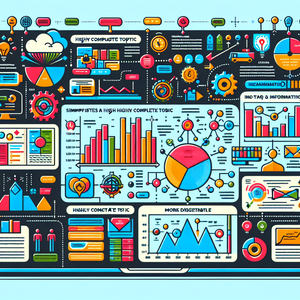The Future of Biotech: How Equipment Technicians Are Shaping Tomorrow's Health Solutions

Traditionally, equipment technicians have been responsible for the maintenance, calibration, and troubleshooting of laboratory instruments. However, as biotechnology strives for greater efficiency and precision, the expectations for these technicians are evolving. Today, they are increasingly required to possess a blend of technical expertise and innovative thinking, allowing them to contribute meaningfully to research and development processes. For instance, the rise of automation in laboratories demands that technicians not only operate sophisticated robotic systems but also understand their programming and data output. Embracing AI technology is another critical shift; technicians are now expected to utilize machine learning algorithms to predict equipment failures, optimize maintenance schedules, and enhance productivity. This shift necessitates ongoing training and education, ensuring that technicians stay abreast of the latest technological advancements.
Collaboration with Scientists and Engineers
The relationship between biotech equipment technicians and scientists is becoming more collaborative, as both parties recognize the value of integrating their respective expertise. Technicians are now often involved in the initial stages of research projects, providing insights on equipment capabilities and limitations that can influence experimental design. This collaborative approach not only streamlines workflows but also fosters an environment of innovation. A real-world example of this collaboration can be seen in the development of a new diagnostic tool for early cancer detection. Technicians worked alongside researchers to tailor the specifications of the equipment used in clinical trials, ensuring that it met the rigorous demands of accuracy and reliability. Their hands-on experience with the machinery allowed them to provide valuable feedback that ultimately shaped the tool’s efficacy.
The Impact of Data Analytics on Technician Roles
Data analytics is revolutionizing the way biotech companies operate, and equipment technicians are at the forefront of this transformation. By leveraging data collected from laboratory equipment, technicians can identify patterns, track performance metrics, and anticipate issues before they arise. This proactive approach not only minimizes downtime but also enhances the overall efficiency of research operations. Technicians who embrace data analytics skills can contribute significantly to the optimization of laboratory workflows. For example, by analyzing equipment usage data, a technician may discover that certain instruments are underutilized during specific hours. This insight allows the lab to reallocate resources effectively, maximizing productivity and expediting research timelines.
The Future Career Landscape for Technicians
As the biotechnology industry continues to advance, the demand for skilled equipment technicians is expected to grow. However, this growth comes with the necessity for continual learning and adaptation. Aspiring technicians will need to focus on developing a diverse skill set that includes technical proficiency, problem-solving capabilities, and familiarity with advanced technologies. Educational institutions and training programs are adapting to this need by offering specialized courses that blend traditional technical training with emerging technologies. Certifications in areas such as automation and data analytics are becoming increasingly valuable, providing technicians with the credentials needed to thrive in this evolving landscape.
Career Considerations for Aspiring Technicians
As the biotechnology field expands, numerous career opportunities are emerging for individuals interested in becoming equipment technicians. Here are some key considerations for those looking to enter this rewarding profession: 1. Technical Expertise: A strong foundation in mechanical engineering, electronics, or a related field is essential. Aspiring technicians should pursue relevant degrees or certifications. 2. Problem-Solving Skills: The ability to troubleshoot and resolve issues quickly is crucial. Technicians often face unexpected challenges that require innovative solutions. 3. Familiarity with Automation: Understanding automated systems and robotics is increasingly important as labs adopt advanced technologies. 4. Data Analysis Proficiency: Skills in data analytics will enable technicians to interpret performance metrics and optimize laboratory operations. 5. Collaboration Skills: Working closely with scientists and engineers requires strong interpersonal skills and the ability to communicate technical information effectively. 6. Lifelong Learning: Continuous education and training are vital for staying updated with industry advancements and new technologies.
The future of biotechnology is bright, thanks in large part to the contributions of equipment technicians. As they adapt to emerging technologies and embrace new collaborative roles, these professionals are not just maintaining equipment—they are shaping the trajectory of health solutions. By integrating their technical expertise with innovative practices, technicians are ensuring that the machinery of biotechnology operates at peak efficiency, ultimately accelerating the development of life-changing medical advancements. As we look ahead, it is clear that the role of biotech equipment technicians will be pivotal in realizing the full potential of biotechnology to improve human health.
Automation Engineer
Genentech, Illumina, Pfizer
Core Responsibilities
Design and implement automation systems for laboratory equipment, ensuring optimal performance and efficiency.
Collaborate with equipment technicians and scientists to integrate automated solutions into experimental workflows.
Required Skills
Proficiency in programming languages such as Python, C++, or Java specific to automation systems.
Strong understanding of robotics and control systems.
Laboratory Data Analyst
Johnson & Johnson
Core Responsibilities
Analyze data generated by laboratory equipment to identify trends and improve operational efficiency.
Develop dashboards and reporting tools to visualize performance metrics for stakeholders.
Required Skills
Expertise in statistical analysis software (e.g., R, SAS) and data visualization tools (e.g., Tableau).
Background in biostatistics or life sciences to interpret experimental data effectively.
Biomedical Equipment Technician (BMET)
Medtronic
Core Responsibilities
Maintain and repair a wide range of biomedical equipment used in research and clinical settings.
Ensure compliance with safety regulations and standards for medical devices and laboratory instruments.
Required Skills
Certification in biomedical technology (e.g., CBET) and knowledge of medical device regulations (FDA, ISO).
Mechanical and electrical troubleshooting skills specific to biomedical devices.
Quality Control (QC) Analyst
Amgen
Core Responsibilities
Perform routine testing and validation of laboratory equipment and processes to ensure quality and compliance.
Document findings and collaborate with technicians to rectify any deviations from standards.
Required Skills
Familiarity with Good Laboratory Practices (GLP) and quality assurance methodologies.
Strong attention to detail and analytical skills to interpret quality data.
Research Scientist - Biomanufacturing
Regeneron, Gilead Sciences
Core Responsibilities
Engage in developing and optimizing biomanufacturing processes for the production of biological products.
Work closely with equipment technicians to ensure that production machinery operates according to specifications.
Required Skills
Expertise in cell culture, fermentation technology, or purification processes.
Strong project management skills to oversee research initiatives from conception to implementation.


